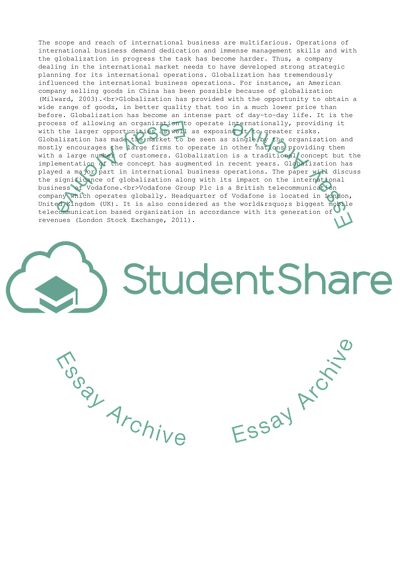Cite this document
(“Globalization and International Business: The Case of Vodafone Study - 1”, n.d.)
Globalization and International Business: The Case of Vodafone Study - 1. Retrieved from https://studentshare.org/business/1760887-international-business
Globalization and International Business: The Case of Vodafone Study - 1. Retrieved from https://studentshare.org/business/1760887-international-business
(Globalization and International Business: The Case of Vodafone Study - 1)
Globalization and International Business: The Case of Vodafone Study - 1. https://studentshare.org/business/1760887-international-business.
Globalization and International Business: The Case of Vodafone Study - 1. https://studentshare.org/business/1760887-international-business.
“Globalization and International Business: The Case of Vodafone Study - 1”, n.d. https://studentshare.org/business/1760887-international-business.


